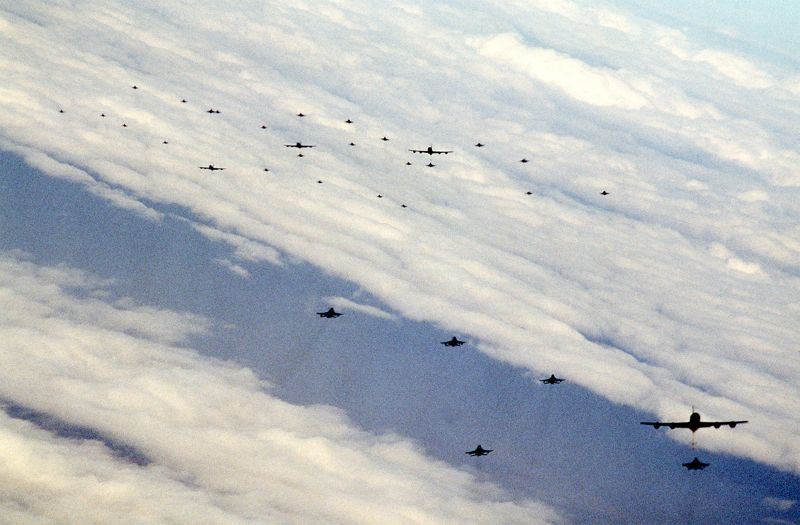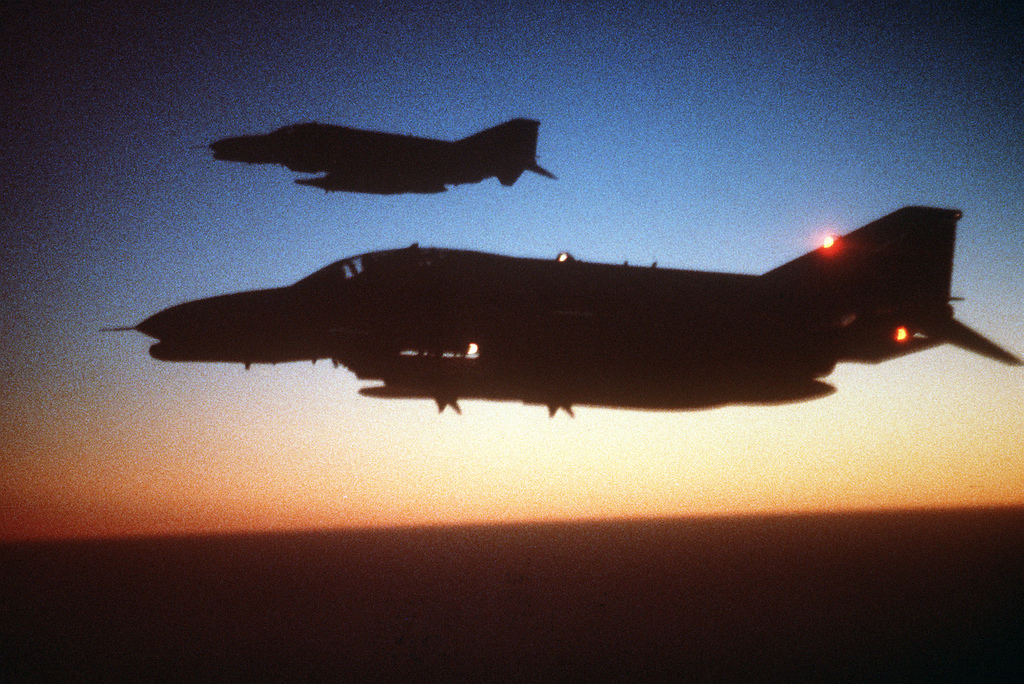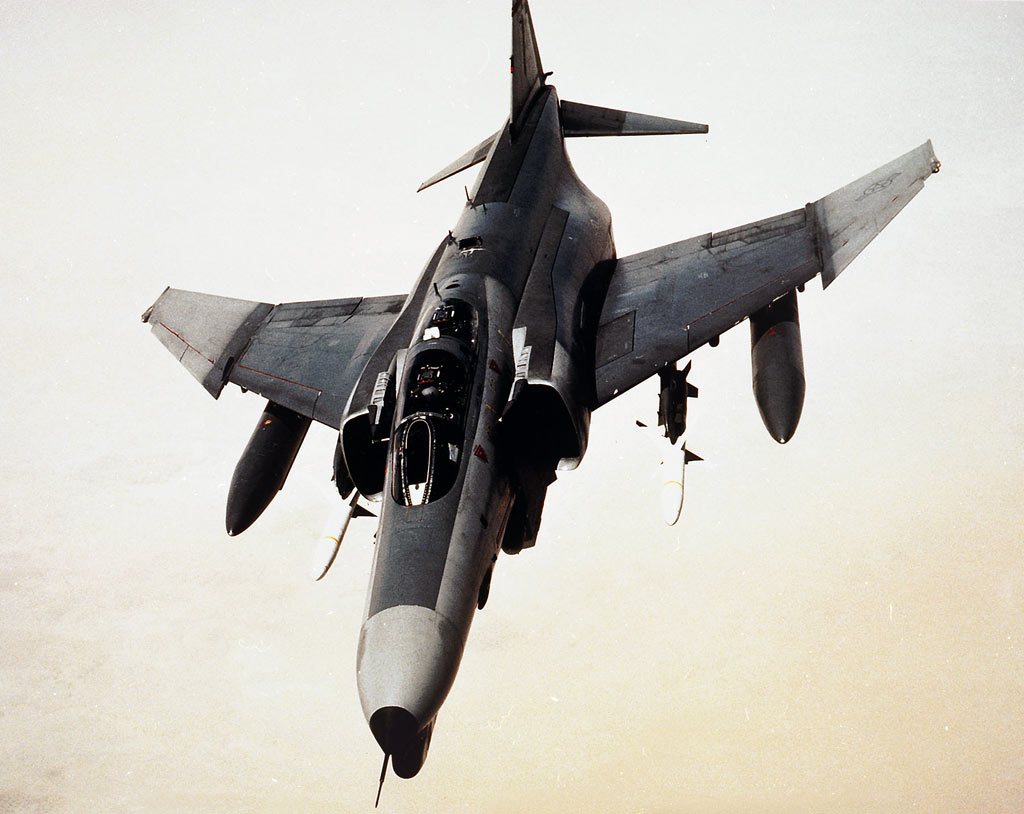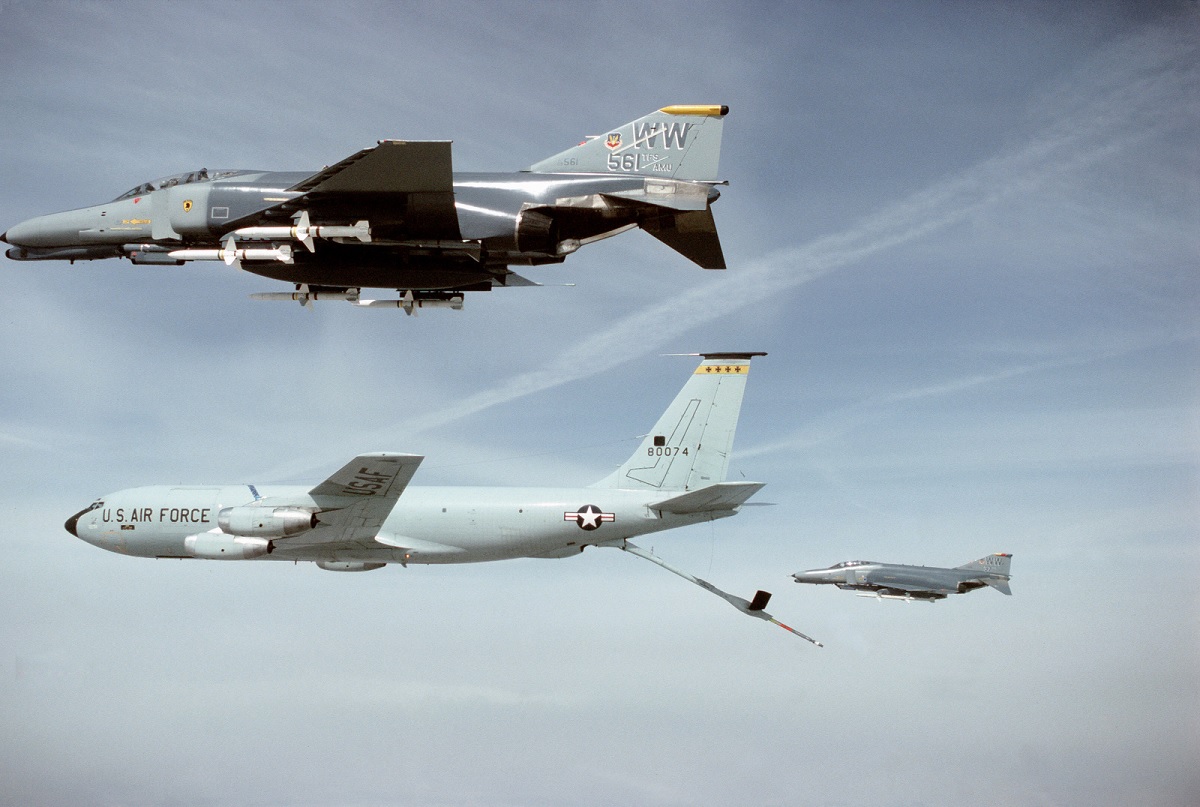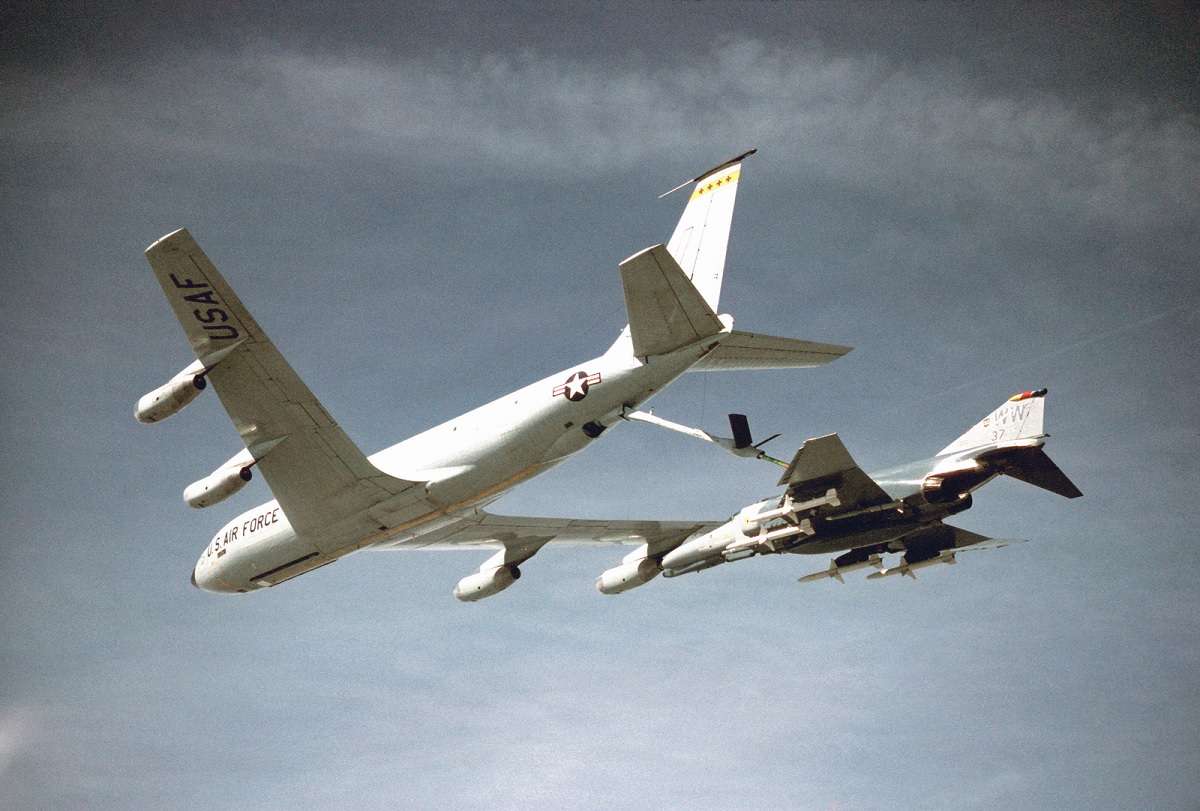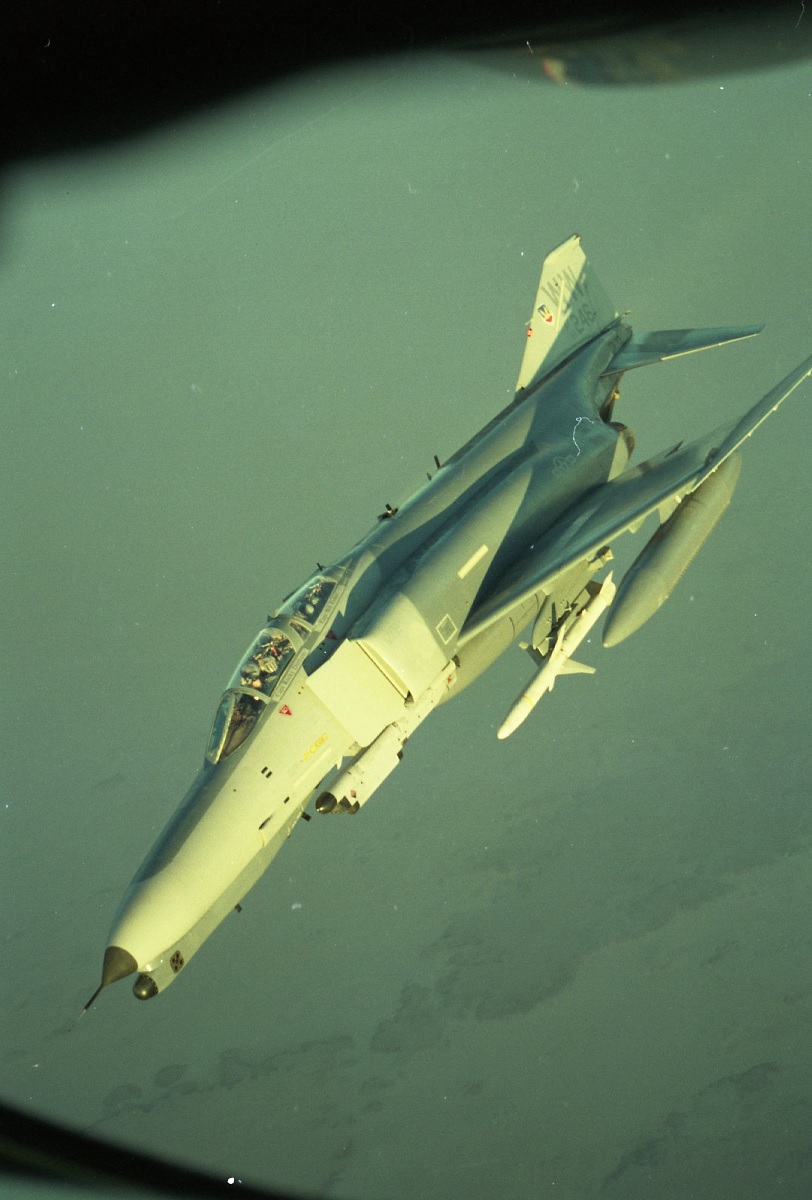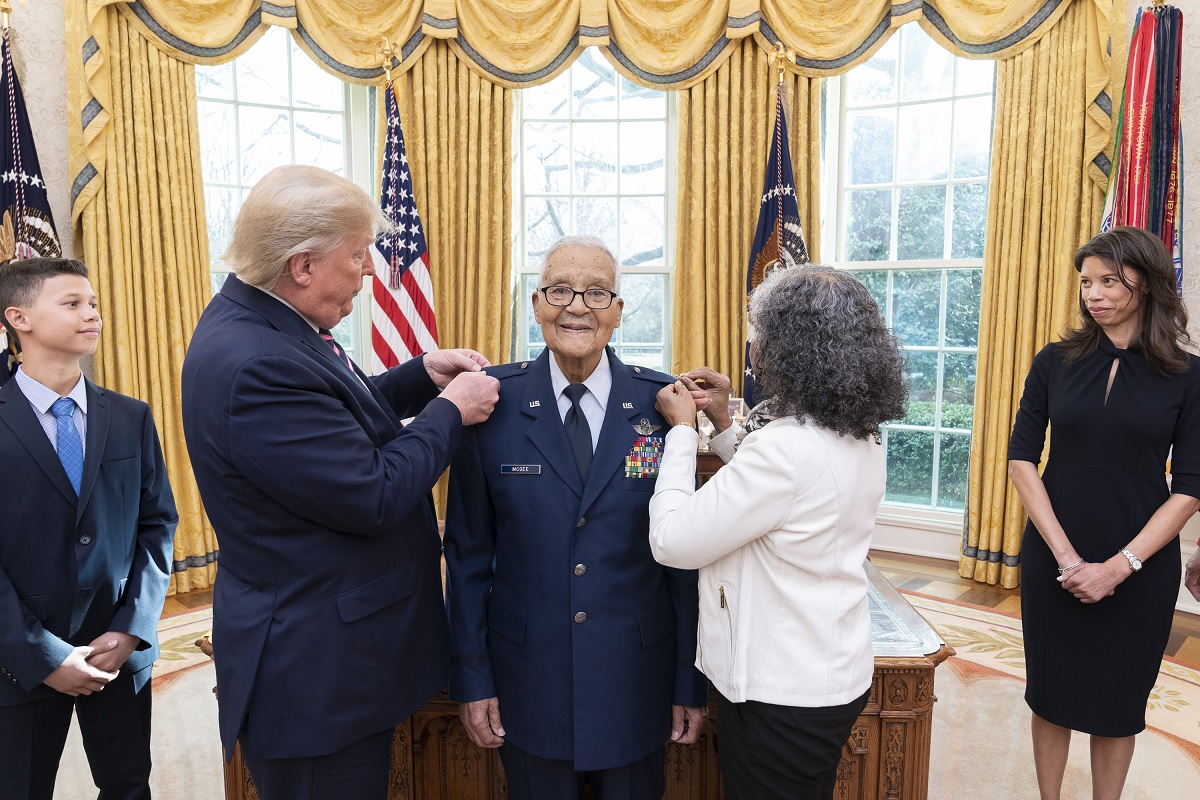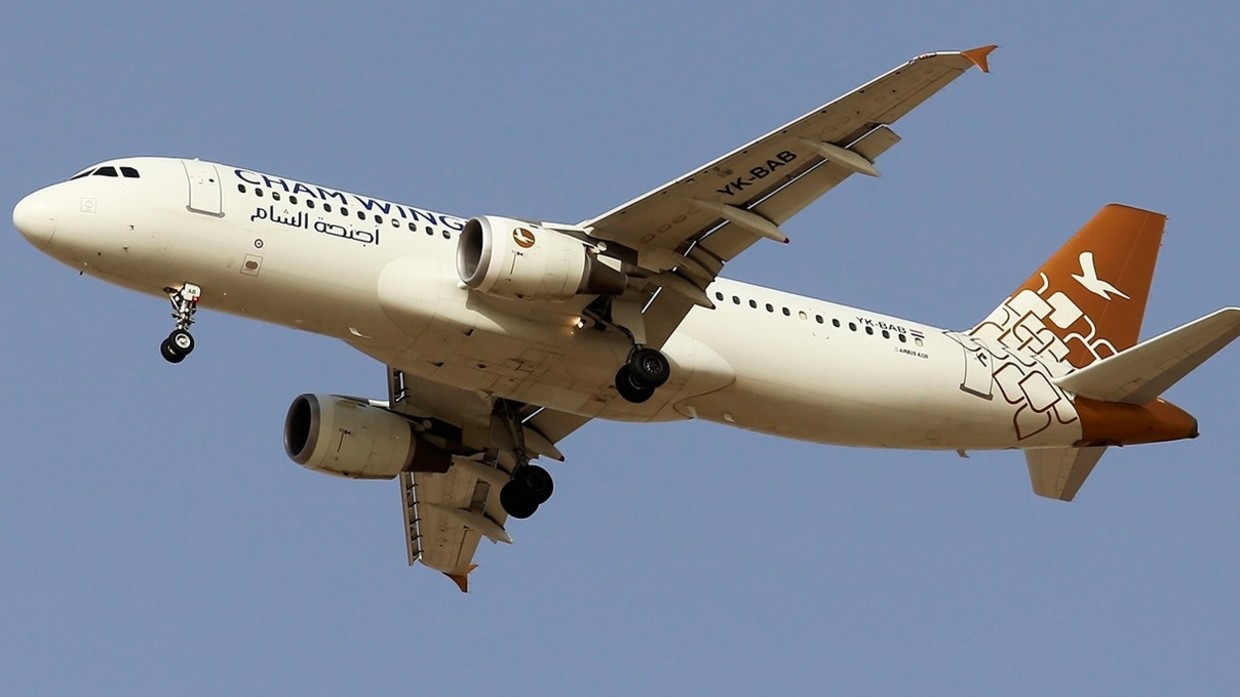The interesting photo in this post features a damaged F-14A Tomcat from VF-11 (modex AE103) embarked aboard USS John F. Kennedy (CV-67), returning from a mission over Beirut, in 1983.
The interesting photo in this post features a damaged F-14A from VF-11 (modex AE103) embarked aboard USS John F. Kennedy (CV-67), returning from a mission over Beirut, in 1983.
As the image clearly shows most of the right stabilator is missing. However, it wasn’t shot away by Syrian anti-aircraft artillery (AAA) or surface-to-air missiles (SAMs).
Robert (Bob) Fiegl, former Maintenance-Material Control Officer for F-14 Tomcat, explained to me: ‘I happened to be in JFK’S CIC on unrelated business (had to use the Sat phone) when a TARPS aircraft. from VF-31 escorted by a Red Ripper from VF-11 went over Lebanon and took all kinds of fire. The admiral and the JFK Ops O were seated in the ‘Big Guy’ chairs. I’ll never forget the audio. Tense! Neither aircraft. sustained damage during that mission. Immediately after that, the admiral gave the command to our surface ships which were close to shore to commence fire on the AAA and SAM positions. Moving on, I had the opportunity to see the Ripper aircraft. pictured above up close… hands-on, actually nobody saw any signs of damage from hostile fire. [If my memory is good here] It was determined to be a material failure. It was ugly.’
‘In Nov. ’83 there were 2 US carriers (and a French carrier) in the east Med near Lebanon. The US lost 2 F-14sn(non-combat) and an A-6 (combat) from JFK and 1 A-7 from Indy (combat).’
In October 1983 John F. Kennedy was diverted to Beirut, Lebanon from her planned Indian Ocean deployment, after the Beirut barracks bombing killed 241 US military personnel taking part in the Multinational Force in Lebanon, and spent the rest of that year and early 1984 patrolling the region. As previously reported, on Dec. 4, 1983, ten A-6 aircraft from Kennedy along with A-6 and A-7 aircraft from USS Independence took part in a bombing raid over Beirut, in response to two US F-14 aircraft being fired upon the previous day. The Navy lost two aircraft during the raid: an A-7E from Independence and an A-6E from John F. Kennedy were shot down by SAMs. The A-7E pilot was picked up by a fishing boat, but the A-6E pilot Lt. Mark Lange died after ejecting and the B/N Lt. Robert “Bobby” Goodman was taken prisoner and released on Jan. 3, 1984.
Update: Marc Wolff, owner of the Facebook Group Where have all the Tomcats gone, brought attention to the comment that appeared on his group released by Larry J Collier who was MCPO Aircraft Maintenance with the US Navy at the time of the incident: ‘It was corrosion fwd of the aft spar and below the boron skin. A new stab had been on order and the aircraft was going SPINTAC so everyone wanted the plane to fly so CAG didn’t have to report it. So it was scheduled on a three-plane go flying but only around the ship while the other birds did a Tarps mission. As things will happen the best plans of mice and men sometimes go rye, the escort aircraft suffered a maintenance issue and Ripper 03 provided an escort. Due to the rigorous clearing maneuvers to watch the ground below the tarps bird the stab failed. The inboard flaps CB was pulled to raise the flaps so that increased airflow over the damaged stab. Big debate over if it was hit by small arms fire or corrosion. Admiral finally asked the skipper why, if he thought it was combat damage, why was he asking for an engineering investigation? Stab went over the side that afternoon. We did not lose the aircraft. OK3 wire recovery. The plane flew a few days later.’
Stay tuned for additional updates if further details on this story had to come to light!
Check out Helion & Company website for books featuring interesting stories written by #AW# contributor Tom Cooper.
Photo by U.S. Navy





